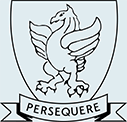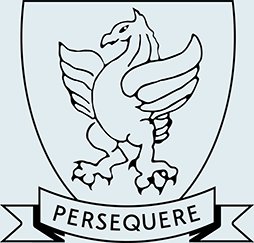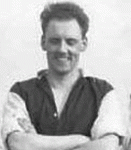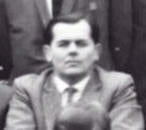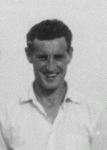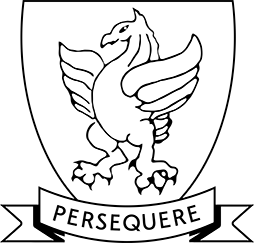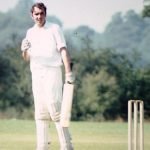
FAREWELL TO A GENTLE GIANT
We first met Alan on induction day at Holloway Comprehensive School, in September 1957, as we waited to be registered and allocated to 1U2. Already he was bigger and taller than the rest of us and little did we know at that time he was to become a lifelong friend, both on and off the sports field.
A genuinely gentle person (I never, ever, saw him lose his temper) his height was always an embarrassment to him and he would stoop to try and hide it. He was polite in conversation, always a good listener and contributed sense and perspective when needed – persuading me to avoid many a confrontation (JC).
As a teenager his passion was cricket (and Arsenal football club) – although he was interested in all sports. No teenage angst for Alan, he just cruised gently through his school years – a friend to all. He would never rise to exhortations to use his height and weight and ‘put it about a bit’, although it was fun to follow him through the Arsenal terraces – a smooth journey as the crowd parted in front of him.
Alan was a passionate supporter of the Old Camdenians, distinguishing himself on the cricket field and latterly excelling at his mid – life passion golf, where he served on the committee of his local club and won many handicaps at the annual OC’s golf day (about which he was unfailingly modest).
We have many happy memories of away – days to many a sports match since he was one of the very few of us who had access to a car, (his father ran a second hand car showroom and Alan had access to the pick of the motors).
To his family and friends his smile, gentle manners and wry sense of humour will be a great loss, as will his unfailing support for the Old Camdenians.
John Chandler, Paul Coffman, Michael Bartley, John Bradford
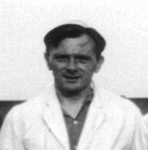
It is with sorrow that I have to tell you that Dennis Steel died peacefully in hospital on 20th December, after a short illness. Dennis was a stalwart of the Old Camdenians Club and was heavily involved with the start up of the club after the war in which he flew Lancaster bombers with the 619 squadron. Dennis was Secretary of the cricket club from the mid 1940’s to 1970. He was to the cricket club what Ron Nutkins was to the football club. Dennis was treasurer of the group that raised money to secure the lease of the ground at Burton Hole Lane at a time when the club was in the ascendancy.
For the whole of his cricket playing career with the club, Dennis kept wicket and was a consistent number 11 batsman. He was married for 67 year to Betty who died in 2013. Before he moved to Chelmsford, Dennis would bring his family of two daughters, Christine and Valerie to Bow Lane, Finchley. Betty was one of a band of ladies who volunteered to prepare tea for the players.
Dennis kept wicket at a time when the club’s two fast bowlers, Paul Yates and Charles Simpson were at their peak. First change bowler was likely to be thundering George Robb or windmill Mick Larner. The likely spinners were Bert Weedall, Stuart Hamer and Richard Brown.
Dennis devoted much of his time to the Old Camdenians Club in general and to the cricket club. But he was also a prominent member of the Old Camdenians Dramatic Society, often playing the dashing male lead. Sometimes the middle lines of his longer speeches were extemporised, though the final sentence was on cue.
Dennis was a gentleman, sociable, articulate, considerate and good company, especially on tour.
His funeral will take place at Chelmsford crematorium on Friday, 19th January at 1.pm
We send our condolences to his family.
RB 8.1.18
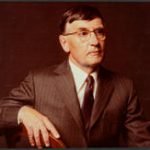
Eric Thomas Stokes historian of India and empire, was born on 10 July 1924 in Hampstead, London, into a cockney working-class environment, the son of Walter John Stokes, pianoforte maker, and his wife, Winifred Maud Williams… He attended Holloway County School.
He was a historian of South Asia, especially early-modern and colonial India, and of the British Empire. Stokes was the second holder of Smuts professorship of the History of the British Commonwealth at the University of Cambridge.
He was the author of The Peasant and the Raj: Studies in Agrarian Society and Peasant Rebellion in Colonial India and The Peasant Armed: The Indian Revolt of 1857. The Peasant Armed: The Indian Revolt of 1857, represented a major historical revision typical of British historians of the 1960-1970s, and were to be studies in the Lower Doab, Indian agrarian tracts covered by Chief Commissioner of Oudh, the Commissioner of Benares and Western Bihar in mid nineteenth century. The detailed treatment of the social origins of the revolt would have extended to all regions where mutiny was complemented by civil rebellion in 1857 – 59. Eric however had not begun to write his conclusion at the time of his death in 1981.
The book chapters discuss the military dimension of British strategy and tactics, as well of Sepoy Rebels, the Peasant World and British Administration. Stokes own passion for the links between sepoy mutiny and civil rebellion in 1857, are explored in detail.
Bayly notes that, “Stokes returned again and again to the peasant world of India, by whose color and vitality he had been enthralled when serving as a subaltern in the Indian Mounted Artillery during the War.
He completed detailed work on the Delhi area after visiting India in 1975-6. This visit seemed to prove to him the vacuousness of the broad caste categories.”
Eric died on 1st January 1981 aged 57 years old.
RH
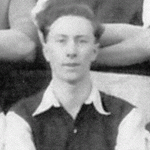
From an Old Camdenian
“I knew Reg Taylor fairly well and always saw him as a tireless team player that gave his all.
He came across as a very nice guy with his most notable soccer feature being the pair of glasses that stayed in place despite not backing out of heading opportunities.I always enjoyed his company both on and off the pitch.
Just one of those many Old Camdenians who held themselves upright and helped mould my own behaviour at that impressionable age.”
For the whole of his cricket playing career with the club, Dennis kept wicket and was a consistent number 11 batsman. He was married for 67 year to Betty who died in 2013. Before he moved to Chelmsford, Dennis would bring his family of two daughters, Christine and Valerie to Bow Lane, Finchley. Betty was one of a band of ladies who volunteered to prepare tea for the players.
Dennis kept wicket at a time when the club’s two fast bowlers, Paul Yates and Charles Simpson were at their peak. First change bowler was likely to be thundering George Robb or windmill Mick Larner. The likely spinners were Bert Weedall, Stuart Hamer and Richard Brown.
Dennis devoted much of his time to the Old Camdenians Club in general and to the cricket club. But he was also a prominent member of the Old Camdenians Dramatic Society, often playing the dashing male lead. Sometimes the middle lines of his longer speeches were extemporised, though the final sentence was on cue.
Dennis was a gentleman, sociable, articulate, considerate and good company, especially on tour.
His funeral will take place at Chelmsford crematorium on Friday, 19th January at 1.pm
We send our condolences to his family.
RB 8.1.18
After leaving Holloway School in 1952, Roy trained as a Post office engineer, one of his first jobs being to repair a line into the school. A versatile footballer, he played only two seasons for the Old Camdenians but just long enough to appear at full back for the victorious 3rd XI Cup Final team of 1959.
Thereafter he moved with his job, to Borough Green in Kent where he continued to play local football into his late thirties. Other active interests included badminton and rambling and his cheerful, social nature won him much respect and many friends within the local community.
Roy only resumed contact with the Old Boys two years ago in 1999 and had hoped to attend one of our dinners. A long illness intervened however, throughout which he remained typically optimistic.
Roy died in 2001.
He was a devoted family man and our sympathy goes to his wife, Alma and his children and grandchildren.
Alan Meyer
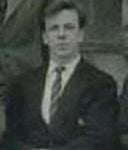
He elected to do his National Service in the Army and subsequently was commissioned into the “Sherwood Foresters”. After his service, he was accepted into Birmingham University where he studied “Civil Engineering” and eventually obtained a First class Degree He worked for a time in England as a Civil Engineer but eventually, after marrying Anne Davies, emigrated to Canada, originally settling in Vancouver. He worked for the Canadian Government (Transport Canada) in areas of airport Quality Control, Ground Transportation, Research and Development etc before becoming the Airport General Manager at Lester B. Pearson International Airport, Toronto and the General Manager of that airport’s Terminal 3 Project. This of course necessitated moving many times throughout a country Ted loved.
One amusing incident we finally found out when we were in the V1th. Form that Ted had actually, at the age of 11, attended the Camden School for Girls. Evidently he had been accepted for Holloway but there was not a place ready for him, so he was sent for a time to the Girls School and was the only Boy in the whole School. We found out because he was the instigator of Monthly Dances which were hosted in turn by Camden School for Girls, Parliament Hill Girls School, William Ellis and Holloway. During the arrangements this fact was discovered.
Ted was my Best man at our Wedding and we always regretted that we lost touch over the years I think mainly due to Ted’s many changes of address. However, we were delighted to renew our friendship through the Old Camdenians and we were so pleased that we could meet up again. We knew that in the V1th. Form he and Frank Drewitt had worked the Summer Vacation as crew on the Thames Cruise Boats, so we arranged to have Dinner on Board a modern Cruise Boat to remind him of “Old Times”
I have referred to “Ted” in this obituary as Ted, but for all of his time in Canada which of course was the greatest part of his life, he was known as Ed.
George Ives.
Glen Louis Watt, who was born in October 1920, died peacefully after a short illness in Whittington Hospital, Highgate, London, of cancer, on 23rd October 1996. His family were with him at his end.
Louis attended Dover Grammar School for Boys from 1928-1939. He was Head Prefect in his last year and also captain of cricket, a member of the rugby team, the school orchestra and the dramatic society. From school he went to Cambridge to read Natural Sciences with Biology as his main study.
But war service intervened for the next five years during which Louis gained the rank of captain in the Cameronians Scottish Rifles and then spent six months with service with the Kenya government.
Returning to complete his qualifications as a teacher he became senior science master at Holloway Comprehensive School where he taught from 1954 to 1971. He supervised many field trips with his biology classes to Swanage and other sites.
Louis had an old Rolls Royce of which he was very proud, compartmented with a glass partition and 2 rows of facing seats in the back, into which his students crammed. His ‘A’ level students regularly smoothed their way to Southend and Brighton for field trips, giving the traffic the finger from the back of ‘their’ Rolls Royce.
He was bilingual and happy to take a class in French.
He also found time (1956-61) to be, at first, secretary and then chairman to the National Association of Labour Teachers.
In 1971 he became head teacher of Tollington Park School – a post he held until he retired in 1981 – where he was liked and respected by both colleagues and students. During the time he was teacher at Holloway School and when he became headmaster at Tollington Park he regularly took interested students to concerts and operas. In 1981 Louis became an advisory head and spent the next three years developing better relations between schools, school-leavers and local employers.
Louis demonstrated his affection for Dover and his own school by the frequency with which he travelled to Old Boys’ days, annual general meetings and dinners. He was the Association’s President in 1978-79.
The family has set up a memorial fund in Louis’ name for an annual competition for young musicians at Morley College. The Club has made a contribution and I can provide further details should anyone wish to make a personal contribution.
Old Camdenians were present at a service of thanksgiving held at Southwark Cathedral and he will be missed by his many friends. To his widow and family we send our deepest sympathy.
Bert was a key player for the renowned Old Camdenians football side of the 1960’s. He made 45 appearances for the London Old Boys Football League team and won honours with the AFA. He played cricket for the Old Camdenians for over 30 years. Bowling a nagging length, his slow left armers took more than a 1000 wickets.. He was a fine outfielder and took over 200 catches (which greatly helped my bowling average). During his long term as club secretary no one dared cry off on a Friday night. He was a good humoured, no nonsense character and his cheerful enthusiasm constantly inspired teammates to give their best. His fitness and competitive spirit made him a formidable opponent, tempered by an innate sense of fair play and sportsmanship. These qualities earned him great respect and many friends. With his wife Elsie, Bert gave great service to the Old Camdenians. He was a much loved family man who will be sorely missed by all those who were privileged to know him. We extend our deepest sympathies to Elsie and Mark.
AM
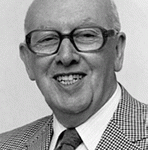 George Michael Wickens was a distinguished Canadian-British Persianist as well as Arabist, translator and a University lecturer.
George Michael Wickens was a distinguished Canadian-British Persianist as well as Arabist, translator and a University lecturer.
Born in London on 7th August 1918, George attended Holloway County School, and Trinity College, Cambridge, receiving his BA in 1939 and MA in 1946.
During the Second World War he served with the Royal Army Pay Corp from 1939 to 1941 and the Intelligence Corps from 1941 to 1946, rising to the rank of captain. Following his wartime service — most of which was spent in Iran — he resumed academic life, teaching at the University of London for three years before accepting an invitation to return to Cambridge. He taught there until 1957 when he was offered an associate professorship at University of Toronto. He became a full professor in 1960 and founding chair of the Department of Islamic Studies (predecessor to today’s Department of Near and Middle Eastern Civilizations) in 1961.
He was instrumental not only in the founding of an Iranian Studies and Islamic studies department in University of Toronto, but in establishing it within a decade as a major centre in North America.
A prolific and distinguished humanities scholar, Michael was the author of Avicenna: Scientist and Philosopher (1952). He was fluent in Persian and Arabic and was one the pioneering figures of Persian literature in Canada. He translated several masterpieces of Persian literature as Boostan of Sa’di into English.
In nearly 22 years of retirement, beginning in 1984, Michael read, wrote, engaged in translation projects and continued to work with graduate students, while adding to his repertoire of languages. Above all, Michael was principled, an original thinker and independent until his final day.
He was predeceased in 1993 by wife Ruth (nee Lindop). Michael died shortly after suffering a stroke a day earlier, in the early hours of January 26th 2006 in Toronto. He leaves six sons, two daughters, 13 mostly adult grandchildren and six great-grandchildren. The family wishes to thank, in particular, one trusted friend and colleague. Michael asked that there be no memorial service, but would encourage people to make donations to the charities of their choice or to the Funeral Advisory and Memorial Society of Toronto.
RH
Michael joined the school at Towcester in Spring 1940. He had been due to start at Holloway
in September 1939 but the disruption of the coming war delayed his arrival. He quickly made an impression being energetic and talkative, too much for some Masters! He was billeted at Blisworth and later Cosgrove where he joined the cadet unit, going on exercise with the local Home Guard. He took a keen interest in the progress of the war and was absorbed by the detail of military uniform and equipment. When the school returned to London he enlisted in the local army cadet force where he gained promotion. It was during this period that the family home at Highbury corner was bombed and they were rehoused further along Compton Terrace, where he continued to live for the next fifty years
Early in 1946 at the age of 18 he was conscripted into the army. After initial training and to his everlasting dismay he was posted to the Pay Corps. So much for exciting times of action and foreign travel; instead long hours desk bound at Aldershot, working on the pay and allowances of the demobilising troops. On completion of his army service, Michael joined the clerical staff of the London County Council Architect’s department, on what he expected to be a temporary engagement, but which extended to about twelve years. In 1960 he left the LCC to join the Westminster Bank, again working in the Architect’s department, later transferring to other departments based in London.
Being neither highly ambitious nor career minded he found interests and activities outside work. Amongst these was a spell in the Honourable Artillery Company which gave him more active military experience but perhaps too much square bashing. Unlike many of his contemporaries he had little interest in sport, except for a few years with the LCC judo club.
His fascination with military matters was undiminished and he remained a member of the Military History Society until his death. During the war he had started to collect army cap badges and eventually put together a significant collection. From this sprang his interest in and collection of medals and coins. A keen reader he amassed an extensive library concentrating on war and military history and his hero Napoleon.
Michael married late in life but had enjoyed a friendship with Sylvia for many years. In this time they travelled extensively, particularly in retirement when they visited many exotic places off the beaten track. ~~Sadly Sylvia died some two years ago and left Michel leading a rather isolated life at their home in Harrow away from his old haunts in Islington.
Michael died in 2013.
Dennis Morris
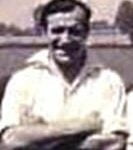
His thrusting, spirited, whole hearted quick bowling up the hill at Burton Hole Lane and his bustling straight for goal barging through tight defences as centre forward made him a key player at both cricket and football for the club. He was secretary of the cricket club for several years and was a vital member of early club tours. He designed and was the worker in charge of building two enormous sight screens at Bow Lane.
Gordon joined a pharmaceutical company based in Folkestone as a medical representative and rose to the position of P.A. to the Managing Director. He emigrated to Australia with his young family in November 1965 to set up and manage that Company’s newly formed operation. After successful years as General Manager he was promoted to Managing Director of the company in India. One of his first tasks was to take on and win a confrontation with a huge Indian trade union organisation over working hours. He was a hard man to deal with and liked winning as well as playing the game well. He was sociable, generous, fair and just in all his undertakings. Underneath the hard man exterior he was as soft as a Cadburys milk tray centre. Gordon was due to celebrate his fiftieth wedding anniversary with Jean. They had three children, the eldest of whom attended the Australian military academy and became a high ranking officer.
To Jean, the boys and grandchildren we extend our sympathy in their great loss and let them know there is a place in England that we remember him with great affection.
Richard Brown
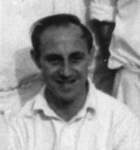
From an early age he was always a dedicated and energetic sportsman. He was evacuated with the school to the Towcester area and was a member of the Army Cadet Corps. During the War he became a pilot and navigator air bomber.
Bill played n important role in the Old Boys cricket and football sides during their glory years after the war. As a diminutive opening bat his strength was the classic hook shot. He was a fearless close forward short leg fielder; in what was then fashionable to have three short legs to off spin bowlers. He bowled occasional loopy off breaks himself when called upon to end any resistant partnerships. His quick dashes down the wing for the football 1st XI earned him some bone crunching tackles to add to his numerous cracked or broken fingers while fielding at cricket. Bill was a team man and he urged everyone to perform to his best.
After he retired playing, Bill was a keen spectator and had season tickets to both Middlesex and Surrey and indeed was a member of the MCC. He was light on his feet and taught Latin American dancing until ill health prevented him. He was supported and nursed by Nora, his wife whom he married in 1948.
They were due to celebrate their Diamond wedding later this year.
We send Nora our sympathy at this sad time.
The Bill and Nora Wraight Old Camdenians Memorial Fund, is the legacy of Nora and Bill Wraight’s wonderful donation to the Old Camdenians’ Club.
It offers bursaries each year for Holloway and Beacon High students that are in tertiary education. Follow the link for more information and application forms.

Just as they used to say about Astaire “ …he can dance a bit …” you could say that Paul Yates played sport “a bit”.
Paul came from the unique generation that knew the world before, during and after World War II, like many children from London he and his sister were parted from their parents and evacuated during the blitz.
After the war he became a pupil at Holloway and obviously enjoyed all the sports at which the school excelled and benefited from the education the school provided. He later went on to Exeter University this was at a time when it was quite unusual for ‘ordinary’ children to have expectations and achievements beyond a ‘trade’.
He met and married his wife Jean in 1956, and moved to Brighton in 1958. His son Graeme was born in 1963. Paul became a teacher and became the Head of Humanities in the school where he taught in Brighton.
His son Graeme recalls
“… he played cricket at school and university prior to playing for the Old Camdenians. We still have a large cup from 1957 which is inscribed ‘P Yates OCCC 1957, 1134 runs, 129 wickets’. Suffice to say he could bat and bowl a bit! In Brighton he played for Brighton and Hove cricket club and then for Rottingdean CC.
He also played county table tennis for Sussex. When he stopped playing cricket, he took up golf, at which he also showed some aptitude. He was captain of East Brighton GC in 1988.
In later years he took up bowls, becoming involved as both a player and in building projects and green maintenance at Woodingdean Bowls Club. He was elected president in 2006 which would have been a 3 year term.
Paul is remembered for enthusiasm and dedication in whatever game he played. Always competitive (which he denied!), always seeking improvement.
He was a practical busy person – with a horror of doing nothing. A do it yourself enthusiast and a keen gardener. We often said he was a perfectionist.
A political left winger who enjoyed a good discussion and even if you disagreed with him at least you always knew where he stood…..”
Paul was my uncle, I can recall also his delight in “word play” as well as his love of a “good discussion”. Paul’s enthusiasm and dedication was positively infectious, indicated by the large attendance at his memorial service where family stood beside ex pupils, Old Camdenians and the bowls club members.
In closing I wish to share one of the completive poems read at the service
I’d like the memory of me
to be a happy one.
I’d like to leave an after glow
of smiles when life done.
I’d like to leave an echo
whispering softly down the ways,
Of happy times and laughing times
and bright and sunny days.
P’ like the tears of those who grieve
to dry before the sun
of happy memories
that I Leave when life is done.
John Fitch.
